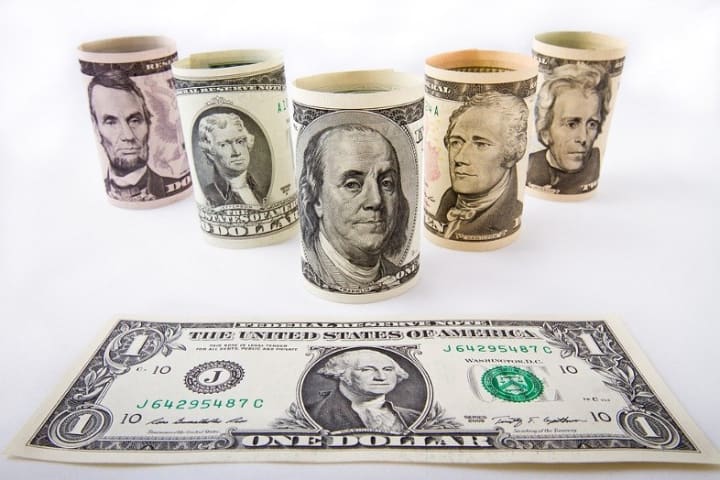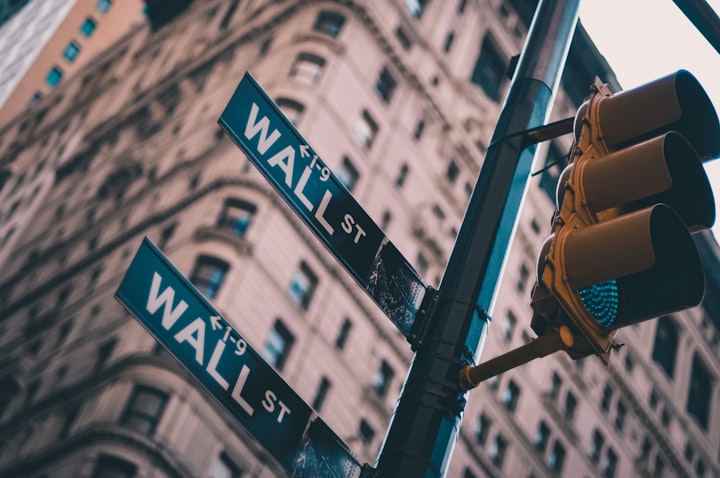The Truth About The Coming Recession
It is bad timing to expect the Whitehouse to admit it is a reality. Yet, financial experts and economists are watching the earliest days of a U.S. recession and a potentially bigger problem-Global Recession.
The price of high inflation is steep. As we all know, the Federal Reserve has been raising interest rates regularly. It's a historic method of bringing inflation under control. It’s also been a steep failure by the Federal Reserve.
Recession
The definition of a recession is a two-quarter decline in the GDP. It’s not a necessity but is a recognized sign when a country's economy contracts. They feature such events as shrinking productivity, decreased consumption, higher unemployment, and occasionally include lower prices. As anyone knows, the current recession that the country is experiencing hasn’t included lower prices.
NBER, or The National Bureau of Economic Research, is the leading authority on recession in the United States and is the authority that declares recessions. In practice, NBER usually announces a recession up to as many as 18 months after the start of the recession. It’s that way to be certain before announcing it, and as most people have seen, announcements about the economy can send things spiraling.
When Covid-19 came upon the world, the shock to the economy was enough for NBER to declare a recession in its earliest days.

Cause of Recessions
A recession typically happens when a decline in the confidence of both consumers and businesses occurs. Indicators like reduced hours worked, fewer purchases, fewer orders of capital, fewer requests for building permits, and decreased sales of consumer goods are all harbingers of a recession.
JPMorgan Chase chief executive Jamie Dimon sees only a 10% chance of an economic slowdown that doesn’t lead to a recession while ominously warning there are 20% to 30% odds of “something worse.”
— Fortune.Com
The Federal Reserve's goal is to bring inflation back down to two percent. Already, there have been several interest rate hikes. However, this comes at a big risk as it’s likely to lead to a slowdown in consumer spending. That will fuel a recession and could push the country into a deeper economic recession.s

Stocks Crashed On Fed Ex Announcement Hurting Market Confidence
The US stock market went into freefall on Friday after FedEx shares were reported as down nearly 22%, revising what was their full-year guidance on Thursday. FedEx CEO Raj Subramaniam thinks that we’re at the start of a global recession. FedEx reported a decline in freight shipments it handles in every region. Subramaniam believes Americans are in a slightly better position because of the dollar's strength but reported a slowdown in Americans’ spending.
The FedEx warning sparked a broad sale of US stocks and reductions in FedEx flights, parking aircraft, trimming staff hours, delaying plans to hire people, and closing locations. FedEx plans to cut $500 million from its capital expenditures budget this fiscal year, which ends in May of 2023.
FedEx won’t be the last company to kill consumer and business confidence and slow down spending. As the Federal Reserve prepares to raise interest, the Dow plunged over 1,200 points as inflation remained troublingly high. It’s sparked fears that the Federal Reserve will raise interest by 100 basis points.
While the expectation for the 100 basis point raise is only slowly rising, last week's inflation report all but confirmed that the Fed will raise rates by at least 75 basis points at its policy meeting this week. The consumer price index rose .2 higher than expected to 8.3% in August, showing continued volatility in the inflationary index.
If it does happen, and the Fed raises interest by 100 basis points, people are going to get seriously concerned, threatening consumer and trader confidence even more than it already is today.
“People would really get concerned because it would imply that the Fed does not have confidence in its own timetable and indeed could end up tightening too dramatically and throw the economy into a recession.”
— Prediction by Sam Stovall, Chief Investment Strategist CFRA Research told Forbes Magazine

History Of 100 Basis Point Hikes By Federal Reserve
There’s a history of using 100 basis point interest rate hikes. It was four decades ago when Paul Volker was Fed chairman. The Fed used a 100 basis point interest hike seven times between November 1978 and May 1981. While that era faced a worse inflationary crisis than the current era, the use of the 100 basis point hike caused markets to fall 60% of the time. By the sixth month mark, markets did level out and the S&P rose an average of .1% by that time.
In 1980 Volker raised rates by 100 points four times. Historically, it was interesting that the S&P gained 25% that year. The rates did catch up with the economy, plunging it into a recession that lasted from 1981–1982.
The Argument On Interest Rate Hikes
It’s possible that if the Federal Reserve raises interest too high, seeking to reduce inflation, it may slow down the economy too much and increase the risks of a deep and dangerous recession. Interest rate hikes make borrowing for consumers and businesses more costly, which ultimately slows down economic growth.
The results of the interest rate hikes in the early 1980s are believed to have caused the deep recession and sharply higher unemployment, which is the only key indicator sign that hasn’t been seen since the beginning of this recession.
It’s clear why economists and market analysts are so concerned. As the Federal Reserve tries to raise the interest rates slowly to curb the inflation that all of America has felt, there is a danger that things can get much, much worse.
So far, the only improvement in the economy for the average consumer has been gasoline. Gas prices have fallen over $1.00 as the barrel falls back. While some believe that it’s a pre-election stunt in the United States, due to a contentious election cycle where the democrats could lose the ability to continue their agendas, others will simply say it is a needed improvement and live with the outcome. Prices of food, basic goods, consumables, and necessities are still unbelievably high even though fuel prices are dipping.
While the Federal Reserve may be working to bring inflation down, are businesses going to follow suit or will they maintain the high prices despite their costs going down? It’s unlikely they’ll do the latter without government interventions which would be an unheard-of interruption in the free market economy. Will the other causes of inflation in the markets hold the prices high no matter what? It’s conceivable.

Other Factors Fed Reserve Can’t Directly Change
- Rapidly raising wages
- Losses in crops leading to short supply
- Losses in livestock leading to short supply
- Excess government regulations lead to costlier operations
- Effects of global warming on waterways cutting transport
- Russia's occupation of Ukraine and its effect on global markets
Time will tell how bad things will get. It doesn’t look promising to very many people, particularly economists, consumers, and market traders, all of who are praying the Biden administration and the Fed reserves interventions steer things into a healthier economic direction.
About the Creator
Jason Ray Morton
I have always enjoyed writing and exploring new ideas, new beliefs, and the dreams that rattle around inside my head. I have enjoyed the current state of science, human progress, fantasy and existence and write about them when I can.







Comments
There are no comments for this story
Be the first to respond and start the conversation.